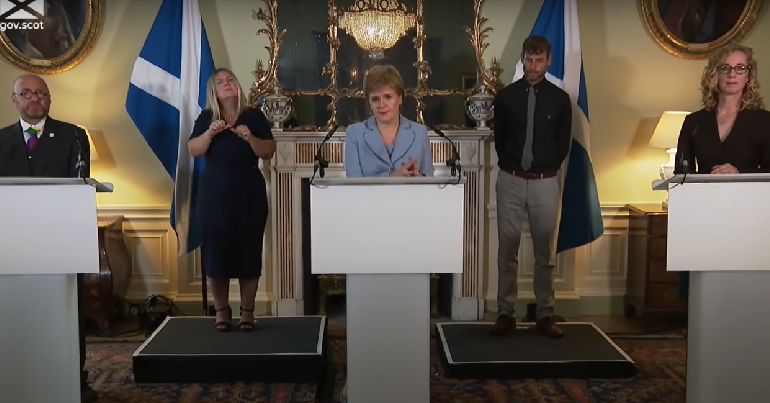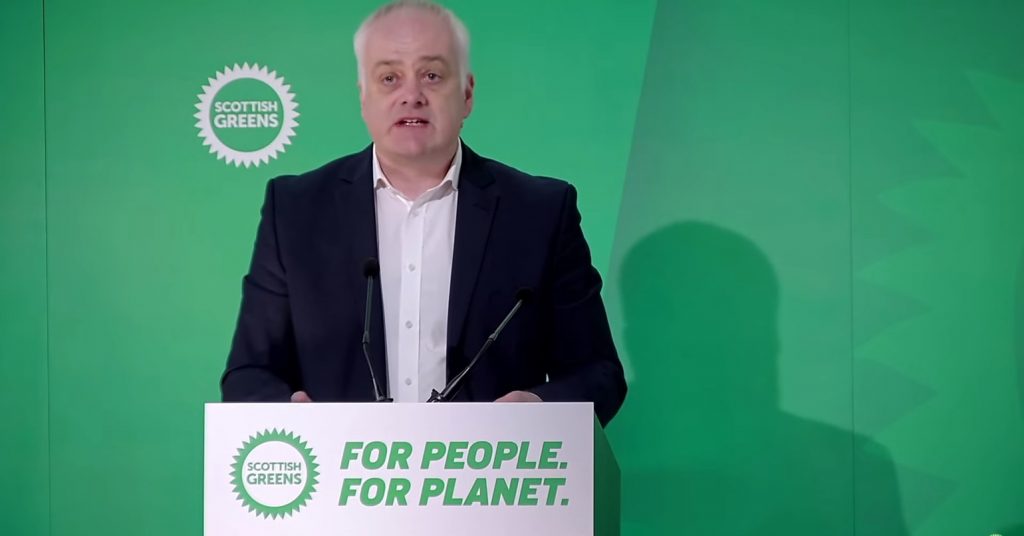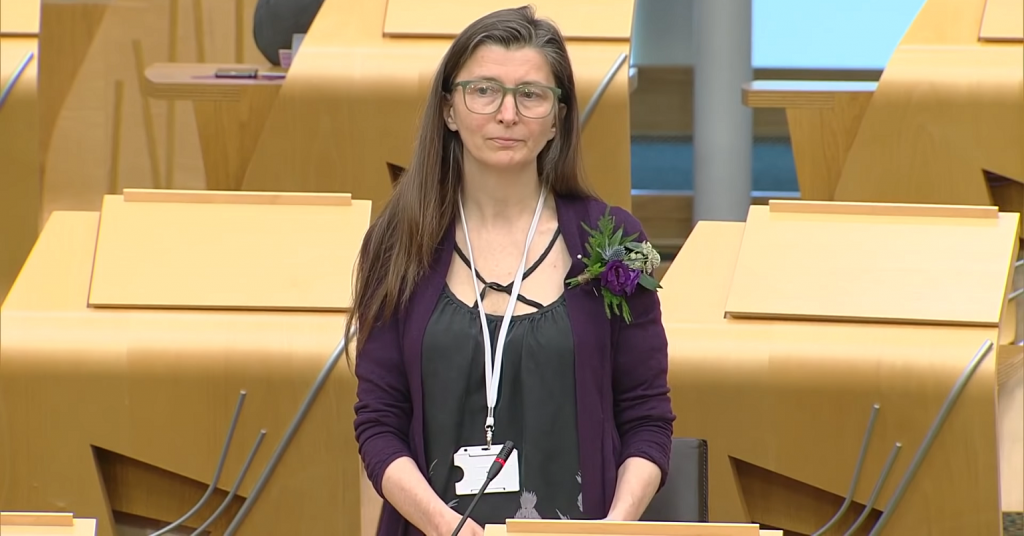Scottish Independence: the no campaign and how to deal with it
It is becoming clear what the strategy of the ‘no’ to independence campaign will be: confusion.
So far, we’ve had a few opening shots: lines which the UK nationalists presumably hope will ricochet down the next couple of years: what will currency be? What about the Scottish army? Even, ‘who will own Rockall‘?
OK, maybe that last one is about something else, but you get the idea.
Of course, at one level, these questions are facetious. They are an attempt to generate confusions. Of course a country the size of Scotland can have a viable army, currency, foreign office etc. Scotland has a bigger population than the median country on earth (which is Georgia). They are facetious because those who ask them aren’t really looking for answers. They are mongering in fear.
But at another level, they are all serious questions.
(Apart from yesterday’s attempted amendment to the 1972 Rockall Act from Malcolm Ian Sinclair, 20th Earl of Caithness. Rockall, if it is a part of Britain, rather than Iceland, Ireland or Denmark, is so by dint of international law of the sea, and the proximity of St Kilda.)
These questions leave the SNP with a dilemma. On the one hand, it is not just for those who support independence to answer these questions. It is for the people of Scotland. There are Tories in Scotland, and they should have a say on Scottish foreign policy as much as the next person. Anti-independence Labour supporters, too, should have a say. But these people are unlikely to engage in these questions before any referendum.
If people did engage seriously in these debates, the lack of consensus would cause another problem. Take, for example, Scottish regiments. Alex Salmond could say “of course Scotland would have a powerful army – a significant majority of the SAS are Scots. We already make up more than our share of Britain’s armed forces. We would of course remain in NATO and be powerful allies working closely with out friends south of the border”. Or he could say “Scotland would withdraw from NATO (as is SNP policy). We will follow the lead of Costa Rica, and abolish our military – there is no need for it in the modern world”. Or, more likely, something somewhere between those positions.
If he went for the former, he would anger the left, peacenik potential independence vote – perhaps to the point of losing their support. If he went for the latter, he would lose support across the SNP heartland of the North East – Blackwatch country.
On the other hand, this fear of the unknown will be key to the no campaign. It allows them to make voters feel like they are being asked to jump into an abyss.
And so, here’s my question. With some of these issues, is there a middle ground? Is the answer a next step process?
So, for example, there is a legitimate question to be asked about what an independent Scotland’s constitution will look like. Should it continue to have a unicameral chamber? Salmond has decided that we will keep the Queen, but does that genuinely mean Royal Ascent will remain too? The SNP has no right to answer these questions alone, and any answer they gave now would likely hive off one corner or other of the yes vote.
But they could say what the process will be. Iceland, for example, recently had a constitutional written by a mixture of ‘crowdsourcing‘, and sort of sortition. Given the SNP would be in power for most of a year post referendum, they are well within their rights to say ‘we would launch, immediately after a yes vote, a constitutional convention along these lines…’.
Similarly, there are serious questions about the army. Obviously the government of England, Wales and Northern Ireland would be as keen to hang onto the Trident missiles at Faslane as the Scottish government would be to get rid of them, but what about the rest of the hardware? 10% of it is paid for by Scots. Do we get to keep 10% of it? Do we want it? These questions can’t be answered until post independence negotiations have taken place. But knowing the process envisioned by the SNP by which they would be decided would help ease the nerves somewhat, whilst reducing the risk of irking one side or other of the debate about the desired outcomes of the process.
Similarly, there are reasonable questions around justice systems, interaction with Europe, a federation of the British isles, and so on, and so on. With all of these, it is not for the SNP government alone to make a decisions: these will be matters for the people of Scotland. But that doesn’t mean it wouldn’t be reassuring to know how the post referendum SNP government would facilitate these conversations in the immediate aftermath of a yes vote.





Great website. Thanks for identifying and addressing some of the fear-mongering. I hope the SNP takes up your idea of a post-independence method of dealing with these questions, as I agree that questions about the specifics of an independent Scotland are best answered by the independent people of Scotland. The ‘correct’ answer on one’s pet issue should not be made a pre-condition to support for independence; either the people of Scotland agree with the ‘correct’ position (in which case there is nothing to worry about) or, they don’t (in which case it is morally wrong to ask powerful outsiders/London/UK voters to impose that view).
Rockall! i might move out there and claim it for myself, a new independent state, population of 1!
All good points.
And if there were any justice in the world then Rockall would belong to the Young Punx.
seems to be a majority “yes” down here in England …
An independent currency would be the best option for Scotland, initally pegged to the £, then unpegged after the country is established, which should only be a couple of years later.
The only problem with the independent currency, is that the EU now insists all new members agree to aim towards Euro membership as part of the membership criteria, and that might mean that the Scottish currency is shortlived.
I don’t think keeping Sterling is really an option, the UK has resisted monetary union in the form of the Euro, is there any reason why it would want to have a monetary union with Scotland? Especially in light of what has been going on in the Eurozone countries lately. Additionally, it would also mean Scottish monetary policy would be set by the Bank of England, which wouldn’t be acceptable to many Scots’ Nats either.
well, as I understand it, you can start by pegging, and then make decisions on ratios to a specific currency. So, my understanding of the way the Maldivian rufiyaa works, for example, is that its value is set as a proportion of the dollar at a meeting of their central bank every however often it is. An independent Scots currency could choose to peg itself to the pound, and then un-peg itse;f at the point at which this ceased to make sense, if they so wished. By leaving monetary policy at Threadneedle street, they would only have one of those options…
Glad (but not surprised) you agree, Adam!
(I should rephrase my last sentence above – clearly an independent Scotland *could* have its own currency and peg it to sterling – I’m just not sure whether a currency peg would have any advantages over using sterling outright. I suspect not really.)
Kesh – indeed, maddening. As far as I’m concerned, it’s clear that Scotland should have its own currency if independent.
I am a bit worried that the SNP have decided to adopt the pound rather than introducing a Scottish currency. Countries that can’t borrow in their own currency are more vulnerable to financial crises (the first 5 pages of this paper by Paul De Grauwe explain why: http://www.econ.kuleuven.be/ew/academic/intecon/Degrauwe/PDG-papers/Discussion_papers/Governance-fragile-eurozone_s.pdf). If anything, an independent Scotland using pound sterling would be even more vulnerable in the event of a crisis than e.g. Italy is within the Euro, since presumably the Bank of England would be even less willing to prop up an independent Scotland than the ECB is to prop up Italy. Maybe there’s some middle ground where a Scottish central bank aims to keep the Scottish pound at parity with sterling but reserves the right to print money in the event of a crisis… but I confess I haven’t thought about this in any detail.
Mark – apols, as a Perthshire boy, I’d say I’m from the North East and from Blackwatch country, but I agree the boundaries are more complex than that…
“….he would lose support across the SNP heartland of the North East – Blackwatch country.”
Just one small quibble….the North East would be ‘Gordon Highlanders country’……a regiment which is no more
From what I recall the Blackwatch recruit in Fife, Lothian and Perthshire
Interesting post, but i am sure that in the time period between a ‘yes’ vote, and actually gaining independence, there will be the chance to draw up a constitution, as it may well take a year or 2 to negotiate full independence.
Remember, along with the Constitutional issues, there are a lot of new arms of the state that Scotland will have to acquire upon independence, it’s a massive but not insurmountable job.
I wonder what an independent Scotland will look like, and whether it really will be a good friendly neighhbour to the UK, afterall, it has taken a long long time for relations between the UK and the Republic of Ireland to get to were they are today.